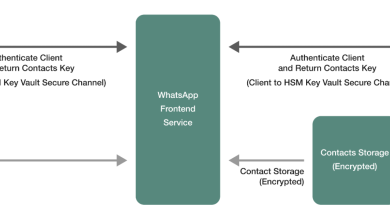12 Affiliate Marketing Trends To Leverage In 2024

Affiliate marketing trends have evolved drastically in the last few years as a result of evolving marketing channels, market dynamics, customer behaviors, and technology.
Though affiliate campaigns have formed a crucial part of many promotional strategies for some time, rising customer acquisition costs, challenges with programmatic advertising, and other challenges are pushing more companies to rely on affiliate marketing than ever before.
In fact, over 80% of brands are now using affiliate programs to increase brand awareness and boost sales. Affiliate marketing can be an excellent way for companies to reduce their marketing budgets without potentially damaging revenue.
However, to get the best results out of any affiliate marketing campaign, companies need the right strategy, one that adapts to the changes in the wider market.
Here’s your guide to the affiliate marketing trends that will influence the campaigns your business launches in 2024 and beyond.
The 12 Top Affiliate Marketing Trends
The trends in affiliate marketing broadly mirror the changes happening in the broader digital marketing landscape. In the last couple of years, we’ve seen a host of changes emerging in the modern world, driven mostly by the rise of new technologies and consumer dynamics.
Artificial intelligence and automation have become staples of the marketing landscape, transforming how we implement and manage marketing campaigns. Consumers have become more cynical and less responsive to traditional marketing methods that seem overly promotional.
Additionally, buyer journeys have become more complex, spanning across multiple channels in both the B2B and B2C landscape. All of these trends have influenced the affiliate marketing space, driving new demand, and changes to affiliate strategies.
Below are just some of the most significant affiliate marketing trends, based on our industry research, that will influence your campaigns in the years ahead.
1. Traditional Advertising Issues Spur Affiliate Marketing Growth
For the first time in 2 decades, digital ad spending slowed to single digit figures in 2023, a trend that’s set to continue in 2024 (Dentsu predicts a growth of only 6.5% in 2024). Various forms of traditional digital marketing are struggling to thrive in a new landscape, defined by customers searching for more authentic, humanized content, and personalized guidance.
Studies show that companies are wasting up to $22 billion on programmatic media spending that doesn’t drive results. Plus, ads on social media channels are struggling to deliver an effective return on investment as new user growth continues to plateau.
Increasingly, brands looking for ways to protect themselves from diminishing ROI are turning to direct partnerships with creators, such as affiliates and influencers. Major brands like Walmart, Target, and Abercrombie have all launched large-scale affiliate marketing programs in the last year, tying brand awareness-building activities with tangible financial success.
This trend is likely to continue throughout 2024, helping to counter platform-dependent risks and rising customer acquisition costs. Notably, this pattern also represents a positive shift for creators, who are seeking out more reliable incomes, particularly since TikTok canceled its creator fund.
Going into the years ahead, companies may need to take a closer look at their marketing budgets and determine exactly where they’re getting the biggest return on investment. If you’re not generating positive results from paid social media and search ads, a switch to affiliate marketing could be a great way to optimize your marketing budget.
2. Attribution Models Shift with Cookie Depreciation
Affiliate marketing has always been a form of performance-based marketing, where affiliates earn rewards based on the sales and opportunities they drive for brands. In 2024 and beyond, however, the way companies track affiliate performance will need to change.
Many attribution models, including the last-click model, multi-touch model, and time-decay model rely on cookies. After years of telling companies a change was coming, Google has finally begun pulling the plug on third-party cookies in the Chrome browser this year.
This means business leaders can no longer rely on cookies to accurately measure affiliate performance. Some organizations are adopting server-to-server tracking as an alternative, but many are struggling to access the right technology to enable end-to-end monitoring.
This may lead to an increase in technology partners who offer organizations more effective tools to identify high-performing partners and correctly compensate affiliates.
Going forward, business leaders will need to leverage technology that not only enables them to track important metrics like click-through rate, conversion rate, lifetime value, and monthly recurring revenue but also maintains a comprehensive view of the customer journey.
Fortunately, new and improved affiliate marketing platforms will deliver incredible results for business leaders. Intuitive platforms that combine automated payment processing, tracking, and metric management should offer businesses more of the data and support they need.
3. Artificial Intelligence Will Influence Affiliate Marketing Trends

It’s no secret that artificial intelligence has become deeply integrated into the marketing landscape. Businesses are leveraging artificial intelligence for everything from predictive content creation to data analysis and scaled marketing automation.
The rise of AI will also influence affiliate marketing trends in a variety of ways. First, we’ll see the rise of more affiliate marketing platforms that leverage AI to help companies identify and analyze potential partners, and their target audience.
These platforms will also be using AI to help companies improve ROI, by offering access to performance optimization recommendations, and tools that help minimize fraudulent activity. These tools will help companies save time, energy, and resources when building their campaigns.
AI solutions will also help content creators scale their production efforts, amplifying productivity and creativity, while also offering access to new tools to support the creation of unique assets, like AI images. Of course, there will be challenges to overcome too.
Google’s new Search Generative Experience system, as well as changes to how search engines rank and assess artificial intelligence content, will force affiliates to rethink how they optimize their content to increase brand awareness and conversions.
We’re likely to see brands working with affiliates, making more data-driven decisions about campaigns, and investing more heavily in personalized, humanized content. At a time when 87% of customers say they would switch brands based on the values a company shares with them, we’ll see a lot of companies showcasing branded content related to:
- Social issues
- Non-profit sponsorships
- Environmental, Social, and Governance initiatives
- Company culture and personality
- Local outreach efforts
If you’re implementing an affiliate marketing strategy in 2024, start by finding out what matters to your audience. Avoid using AI to completely eliminate the “human” element from the affiliate marketing method, as this will make it harder for you to connect with your audience.
4. Affiliate, Partner, and Brand Partnerships Evolve
Partnerships have grown increasingly crucial in both the B2C and B2B landscapes in recent years. Companies are relying more on partnerships to help them collect data, understand their customers, and build better relationships. One thing we expect to see in the years ahead is a greater focus on affiliate marketing overlaying activities throughout the entire organization.
Affiliate strategies don’t just drive leads for sellers, they can also help to capture the attention of strategic partners, and improve employee acquisition. Recognizing this will force companies to take a more holistic approach to how they implement their affiliate strategies.
Companies should be looking for ways to embed affiliate marketing managers into their marketing, sales, and other teams. This will help to ensure that affiliates get the best support to be successful in their efforts and should boost your ability to generate more diverse results.
We’ll also see an increase in advertisers and publishers working more cohesively together, going beyond the standard affiliate relationship. Companies will begin organizing joint webinars and events with their affiliates, co-creating content, and exploring different revenue-sharing models.
This deeper collaboration is another reason why companies will need to take a more integrative approach to building partnerships. Program managers will need to ensure other team members are involved in joint campaigns, from SEO teams for link exchanges to sales teams for product demos and PR teams for live interviews.
Combining the various expertise, resources, and data of publishers and advertisers will allow companies to create more comprehensive, valuable experiences for their audience.
It’s also worth noting that brand-to-brand partnerships are increasing in the affiliate marketing landscape, too. Many companies are exploring collaborations with non-competing brands, connecting their affiliate resources to drive greater brand awareness and reach. This could offer organizations a valuable opportunity to optimize their marketing budget and increase ROI going forward.
5. The TikTok Amazon Turf War Creates Confusion

One of the biggest factors driving new affiliate marketing trends in 2024 is the evolution of the digital and technology landscapes. As bigger tech companies continue to grow, they’ve started looking at each other for inspiration on how to increase revenue.
As a result, we’re seeing more overlap between previously disparate brands. For example, Amazon was once just the world’s leading shopping marketplace. Now, however, it’s promoting ad space and investing in new ways to help customers find inspiration on what to buy.
TikTok, on the other hand, used to be a place purely designed for entertainment, which also offered customers insights on what kind of products they might want to purchase. Now, thanks to TikTok’s shopping features, people can buy products directly from the platform.
Today, these two companies are in direct competition with each other, and both seem to be reliant on affiliates. Affiliate marketing has always been a core part of Amazon’s strategy for growth, and TikTok has always relied heavily on its creators.
In this new landscape, brands will be forced to rethink how they approach affiliate marketing. Do they want to drive customers to a marketplace like TikTok or Amazon, where they can purchase products? Or do companies want to make sure that they’re driving customers back to their actual website, where they can learn more about the brand and potentially make additional purchases?
If companies opt for the latter, they’ll need to focus more heavily on enhancing the customer experience by creating unique assets that are only available on their websites. Some might even choose to implement trends like “live shopping” into their websites.
This is something Nike did recently by partnering with a company called Contester to host a livestream showcasing their latest shoes. With this stream, shoppers can watch the content and purchase products directly from Nike’s website.
6. Interest in Affiliate Marketing Grows in New Landscapes
In the past, affiliate marketing was widely considered a popular choice for B2C companies, focusing on advertising products to a broad audience. Now, that’s starting to change. B2B companies and enterprise-level brands, particularly those in the software space, are seeing the value of affiliate marketing, too. In the B2B enterprise world, the growth of affiliate marketing is being spurred on by the increasing complexity of the buyer journey.
The journey to purchase for a B2B buyer is generally much longer and more complex than it is for a standard consumer. What’s more, B2B buyers are increasingly conducting more of their own research before connecting with sales teams.
This trend will continue to accelerate, making it more important for B2B affiliate marketers to help guide customers toward purchasing decisions. Establishing strong relationships with content creators will allow B2B companies to boost the visibility of their solutions early on and start fostering trust.
Plus, these efforts will contribute to good SEO, helping companies draw more traffic to their websites from relevant backlinks.
News and media publishers may also start implementing more affiliate commerce content in the years ahead. Major news events like elections are drawing more attention to news and publication websites. However, publishers are struggling to retain revenue based on programmatic advertising sales. Additionally, many brands are “blocklisting” news content that veers too close to controversial topics, like politics, leading to additional concerns.
Affiliate efforts could help to offset this issue, as publishers look for ways to maximize the value of their ecosystems. Affiliate channels offer publishers a solution to capturing the attention of companies as programmatic display ads and ad monetization become less popular.
7. Increasing Focus on Influencer Relationships

Influencer marketing has become a leading strategy for both B2C and B2B companies in recent years. Consumers want to see more authentic, real content from the creators they already love online. We’re likely to see an increase in companies leveraging influencers and affiliate marketers in tandem to capitalize on this momentum.
Already, influencer marketing strategies are common among 93% of brands, and trends like working with micro-influencers, nano-influencers, and video influencers to boost awareness will continue to grow. The main shift we’ll see here is in the type of influencer content created.
Highly curated influencer content with an obviously promotional vibe will no longer have the same effect. Influencers and affiliates will need to take a more subtle, relatable approach, and create content for a range of platforms, including TikTok, YouTube, and LinkedIn to drive the right results.
Partnerships between micro-influencers in the affiliate marketing world, as well as larger influencers and thought leaders, are also likely to grow. We may see more teams co-creating content with other organizations to help expand reach and improve growth.
Working with thought leaders will allow affiliates and influencers to create in-depth, educational content connected to the products they’re promoting, delivering more value to customers.
8. Content Diversification Will Be Crucial
Content diversification will be one of the most significant affiliate marketing trends to watch in the months and years ahead. First, affiliate marketers will need to start creating content for all parts of the customer journey. This means focusing not just on driving sales but on increasing engagement and customer lifetime value with educational content, onboarding videos, and similar solutions.
Secondly, these creators will need to experiment with different content formats.
Not so long ago, most affiliates relied on blog posts and the occasional social media strategy to promote their brands. While these forms of content still have value today, the influx of content on the web and changing search engine algorithms connected to written content will require many companies to take a more holistic approach. For instance:
- Video content: Video is one of the most popular forms of content among consumers, and it is one of the fastest-growing mediums in the digital marketing world. Affiliates can create content covering everything from specific product features to unboxing experiences to drive sales. In fact, studies show 88% of consumers have purchased something after watching a video.
- Podcasts: Podcasts are no longer a niche concept in 2024. In fact, they deliver a 4 times ROI in some cases. Bigger podcasters have already been using affiliate marketing techniques for a while now, and we’re likely to see more companies experimenting with this content format in the years ahead.
- Long-tail search content: The demand for text-based content won’t disappear in 2024, but advertisers will be focusing on utilizing long-tail search methods. Creating unique content with long-tail keywords that highlight a specific location or idea will help companies compete in a complex SEO landscape.

Online communities are everywhere in 2024. We have everything from community-focused platforms like Reddit to specific branded communities designed by companies like Salesforce and Nike. These communities represent an incredible opportunity in affiliate marketing trends.
Communities are more niche-focused, and provide access to more engaged users. Using affiliates to drive attention towards communities could help companies to collect more valuable, first-party data about their customers, their needs, and their preferences. On a broader level, developing a community gives companies an excellent way to find more highly qualified affiliates for their team.
After all, affiliates can come in a range of forms, from micro-influencers to brand partners and website owners. They can also be dedicated members of your target audience who already have a deep love for your products and a great understanding of your brand.
Perhaps the best way to take advantage of the affiliate opportunities in your community is to bring loyalty marketing into the affiliate marketing mix. Creating a loyalty program that targets high-value customers and rewards them for sending new buyers to your business is really just another form of affiliate marketing.
Leveraging the assistance of everyday consumers with loyalty-based affiliate marketing programs is an excellent way to increase brand reach and exposure while keeping costs incredibly low. You can avoid paying commissions by simply allowing customers to earn points for their contributions that they can use for discounts on their next purchase.
10. The Metaverse in Affiliate Marketing Programs
The hype around the “metaverse” has definitely died down in the last couple of years as tech giants focus more heavily on artificial intelligence. However, interest in metaverse experiences is still growing, particularly as new software and technologies make it easier for companies to create their own metaverse experiences.
Many companies are already building their own metaverse experiences with a focus on enhancing customer experience and increasing brand loyalty. It’s only a matter of time before more companies see the opportunity to leverage affiliate strategies for promoting both physical and virtual products.
Nike is already investing in this area. The company’s “.Swoosh” marketplace platform allows creators to design sneakers that they can sell in the Metaverse for a cut of the profit. Similar brands could offer creators the opportunity to design their own digital assets, which they can sell for a commission.
Alternatively, companies could ask affiliates to promote the virtual products they create, opening up a new avenue of potential revenue. Right now, it’s difficult to know exactly what affiliate marketing in the metaverse will look like. However, the rise of metaverse experiences is likely to have a significant impact on affiliate marketing trends and business growth in the years to come.
The biggest challenge for businesses is likely to be in finding affiliates that are familiar with the metaverse, and digital landscapes.
11. Brands Showcase More Affiliate Content

In the past, many companies investing in affiliate marketing have been cautious about promoting how frequently they invest in “paid sponsorship”. A lot of companies want the recommendations made by affiliates on their social media channels and blogs to seem like genuine, user-generated content.
Unfortunately, most consumers won’t buy the idea that someone would post a 20-minute video about a new email marketing platform or set of wireless earbuds without any reward. Plus, many jurisdictions have imposed new regulations that actually require affiliate marketers and influencers alike to label their content as “sponsored.”
The good news for companies is that this represents an opportunity for brands to earn the trust of their customers through honest, transparent disclaimers. It also means companies don’t necessarily have to shy away from promoting affiliate content on their own platforms.
Business leaders now have the potential to generate more value from their affiliate marketing strategies by featuring their affiliate partners in videos and articles and sharing affiliate-generated content on their websites. This not only helps to expand the reach of affiliate campaigns, but it can also help to attract more affiliates, allowing your program to scale.
Companies like Amazon are already taking advantage of this new opportunity. For instance, Amazon partnered with creators as part of their Amazon Associates/Influencer strategy, to create content they can showcase on their site, like live stream videos and blogs.
Amazon even uses this content throughout its website on category, product, and holiday promotional pages. In the same way, your company can take full advantage of affiliate content with livestream Q&A sessions about products, video tutorials, how-to guides, gift guides and product reviews.
The challenge here, however, may be in figuring out how to effectively compensate affiliates for content that’s going to live on your website in the long-term. However, if you can get the structure right, showcasing your affiliates could be yet another way to leverage the benefits of social proof for your marketing campaigns, and earn more trust from your audience.
12. Publishers will Demand Greater Support from Advertisers
Finally, one of the most significant affiliate marketing trends we’re likely to see in the years ahead is the demand for greater support from advertisers. Brands that want to truly drive excellent results from their affiliate programs in 2024 will need to give creators a greater level of support.
They’ll need to assist these creators with everything from figuring out how to navigate the new SEO landscape to ensuring they understand which types of media to use for different promotions.
Demand for affiliate marketing might be increasing in a complex promotional environment, but the challenges facing affiliates are growing, too. Business leaders can’t expect to simply provide their affiliates with a custom link and leave them to their own devices anymore.
Comprehensive affiliate marketing strategies will require constant care and attention. Business leaders will need to build “enablement resources” similar to the ones that they offer their internal marketing and sales teams, to give affiliates more of the tools they need to thrive. This could include providing them with digital marketing training tools, pitch decks, branded photography and more.
Organizations will also need to rethink how they support their affiliates with the right commission structure. Building a bespoke structure that prioritizes retaining and rewarding your best affiliates will ensure you can consistently scale and optimize your program.
With increasing competition emerging in the affiliate marketing landscape, it will be more crucial than ever for business leaders to ensure they’re empowering and enabling their partners effectively. You can’t expect affiliates to deliver great results for your brand, if you’re not willing to invest in them, and provide them with the right resources first.
Adapting to Future Affiliate Marketing Trends
Just like the wider digital marketing landscape, the affiliate marketing space is constantly evolving. The marketing space has always been dynamic, affected by everything from changing consumer priorities to socio-economic changes and technological advancements.
Today, affiliate marketing remains one of the best ways for companies to strengthen their connection with their target audience, boost brand awareness, and increase sales while keeping expenses relatively low. Used correctly, affiliate marketing can help generate trust in brands (just like influencer marketing), paving the way for higher customer lifetime values.
What’s more, there’s no limit to what affiliate marketing can achieve for a business. It’s not just a way to drive conversions. It can also attract the attention of investors, strategic partners, and even employees crucial to business growth.
Adapting to the affiliate marketing trends mentioned above will require companies to take a comprehensive approach to rethinking their strategy. However, investing enough time and effort into a holistic plan for modern affiliate marketing success will pay dividends.
If you’re struggling to stay ahead of the latest marketing trends, implement the right affiliate marketing strategy, or optimize your marketing budget, get some professional support.
At Toptal, we can match you with the ideal affiliate marketing expert for your needs, giving you a crucial edge over the competition.
Find your affiliate marketing expert today.
FAQs
Is affiliate marketing trending?
Affiliate marketing has been a popular topic for some time now. Interest in affiliate marketing has increased in recent years, as companies look for more authentic and cost-effective ways to increase customer acquisition, build relationships with buyers, and boost brand awareness.
Is there a demand for affiliate marketing?
In 2024, the demand for affiliate marketing is greater than ever, as other forms of traditional marketing struggle from higher customer acquisition costs and other complexities. By 2027, the global affiliate marketing industry is expected to grow to a market size of more than $27.78 billion.
Does affiliate marketing have a future?
Despite some concerns that affiliate marketing would disappear in recent years, it seems the future is still bright. Affiliate marketing is still a powerful way for companies to reach more customers and expand brand awareness. However, the affiliate marketing strategies that companies use may evolve in the years ahead alongside changing market dynamics.
What is the future of affiliate marketing in 2024?
In 2024, we can expect to see evolutions in affiliate and brand relationships, a new focus on content diversification, increasing interest in artificial intelligence, and a range of other trends influencing the affiliate marketing space.
Is affiliate marketing oversaturated?
No, although demand for affiliates is growing, there’s no risk of any oversaturation happening yet. Affiliates and influencers remain a crucial part of the marketing strategy for many companies. The challenge for companies will be in finding the right influencers to work with, and implementing the correct strategies for success.



